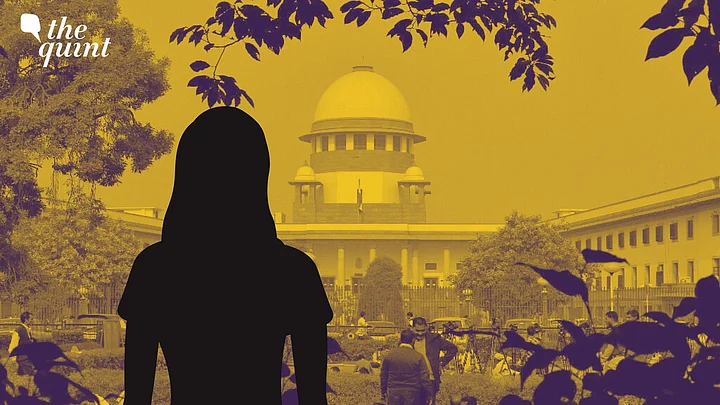(Trigger warning: Descriptions of suicide attempt, murder)
A woman gave poison to her children and was convicted of murder.
The Supreme Court refused to read down her conviction to culpable homicide not amounting to murder.
And yet, it permitted her premature release, pointing out that she had suffered enough already.
Shocking! Right?
And yet the order makes perfect sense legally, it is consistent with our constitutional values and reflects the human face of the topmost court of the country.
Here's how –
“The idea of punishment has to be reformative,” the apex court had said in 2021, as it asked the Uttar Pradesh government to decide afresh the premature release of more than 100 life convicts.
In a similar illustration of reformative justice, an apex court bench of Justices Ajay Rastogi and Ahasanuddin Amanullah has now set aside a Tamil Nadu government order that had refused to allow premature release to a woman who was convicted of poisoning her two sons.
But, What Had Happened?
Conviction and sentence?
The woman was first convicted for attempt to commit suicide (Section 309 of IPC) as well as murder (Section 302 of IPC).
On appeal, however, the High Court acquitted her under Section 309 while upholding the murder conviction.
She was serving a sentence of life imprisonment, and had already spent two decades in jail before she applied for premature release.
And then…?
While a state level committee recommended her release, the state government rejected it.
Their grounds?
“…the Appellant had administered poison to murder her two sons to continue her illicit relationship without any hinderance.” This, they said, was “cruel and brutal in nature.”
So why did the apex court opine differently?
The apex court, however, felt a bit differently about the whole thing because of one major plot point that the government appeared to have missed:
The woman never planned on continuing the relationship anyway!
Why This Order Matters:
Reform-oriented justice, which the apex court has said is the goal behind punitive measures, entails allowing a convict to re-enter society.
It is also consistent with the apex court’s existing approach of allowing even those convicted of serious offences a second chance at life.
“We do not want to punish persons. They must be reformed and sent back to society. Any policy must consider this aspect of reformation in it,” Supreme Court judges S Abdul Nazeer and Krishna Murari had said, as they passed the 2021 order (mentioned above).
In a September 2022 judgment (Rashidul Jafar @ Chota vs State of Uttar Pradesh & Another), a bench of Justices DY Chandrachud and Hima Kohli had noted that many convicts who have suffered long years of incarceration have “few or no resources."
Thus, the court had emphasised that the state ought to implement its policy for premature release of life convicts in an objective and transparent manner.
“The constitutional guarantees against arbitrary treatment and of the right to secure life and personal liberty must not be foreclosed by an unfair process of considering applications for premature release in terms of the policy,” the top court added.
Lauding this latest order in the convict-mother’s case as “welcome”, former Allahabad High Court Chief Justice Govind Mathur said:
The apex court had, in its order, also noted that they were not going to “sermonise society on morality and ethics.”
Justice Mathur further pointed out that while examining a case for premature release, the prime consideration is not the gravity of crime. “It is the effect and consequences of such release," he said.
“This one is a case of an individual nature, where rehabilitation of a criminal in the society's mainstream is an important aspect for premature release,” he added.
Considering that our jails are bursting beyond capacity (391 of the 1,314 prisons in India reportedly had occupancy above 150 percent last year), one hopes that such acts of reformative justice inspire an enhanced focus on liberty. Not just for convicts but also for under-trials who may not even need as much reform, but continue to languish behind bars in a ceaseless quest for bail.
(At The Quint, we question everything. Play an active role in shaping our journalism by becoming a member today.)
